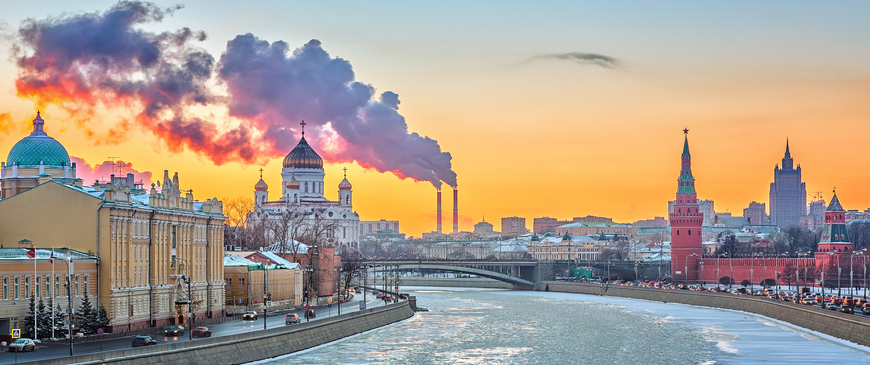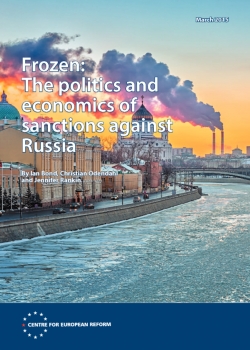
Frozen: The politics and economics of sanctions against Russia
Western sanctions are hurting Russia more than Europe. They will remain an essential tool to prevent a strong and aggressive Russia dominating its neighbours.
View the press release.
- Sanctions will remain one of the main Western tools for pressing Moscow to stop intervening in Ukraine. Whether or not the West decides to support Ukraine militarily, sanctions need to be made as effective as possible.
- Too often, sanctions against Russia have followed the logic of ‘something must be done; this is something; therefore this must be done’. Future decisions on sanctions should be based on having clear objectives and a solid assessment of their political and economic impact on the EU, Russia and Ukraine. This paper discusses the possible objectives of current and future sanctions, tries to disentangle the real effects of sanctions from the rhetoric used on both sides, and makes recommendations for future Western policy.
- Russia’s economy is in a mess, not primarily because of the sanctions, but as a result of a falling oil price, a falling rouble and Russia’s own economic policy mistakes. Sanctions reinforce the effects of other problems. The EU economy, though ailing, is a lot more resilient than Russia’s.
- If the conflict in Ukraine continues, the West should unite to impose much tougher sanctions on Russia. There should be clear, agreed criteria for Russia to meet before sanctions will be lifted. Top of the list should be restoring Ukrainian control over its border and preventing the flow of Russian arms and personnel into eastern Ukraine. Under the Minsk agreement (if it holds), Russia will only hand back control of the border at the end of 2015.
- Sanctions specifically connected to the annexation of Crimea should remain in place as long as Crimea is occupied.
- The longer sanctions go on without achieving the hoped-for improvement in the situation in Ukraine, the deeper the divisions within the West will become. The more likely it will then be that some EU countries will block renewal of sanctions. Leading EU countries and the US will have to work hard to preserve a consensus.
- The collapse of the Russian economy would not be in the interest of the West. But nor is it in the West’s interest for a revanchist Russia to have the power to dominate its neighbours. A prosperous, democratic Russia would be best for everyone; as long as that is unachievable, an aggressive but weak Russia is better than an aggressive and strong Russia. Western leaders should therefore start considering sanctions that would support a policy of containment.
Copyright is held by the Centre for European Reform. You may not copy, reproduce, republish or circulate in any way the content from this publication except for your own personal and non-commercial use. Any other use requires the prior written permission of the Centre for European Reform.

